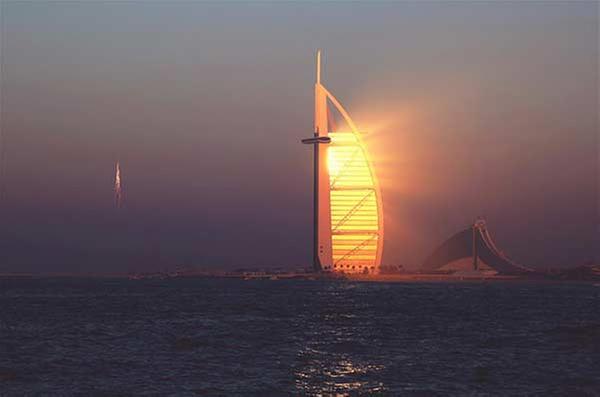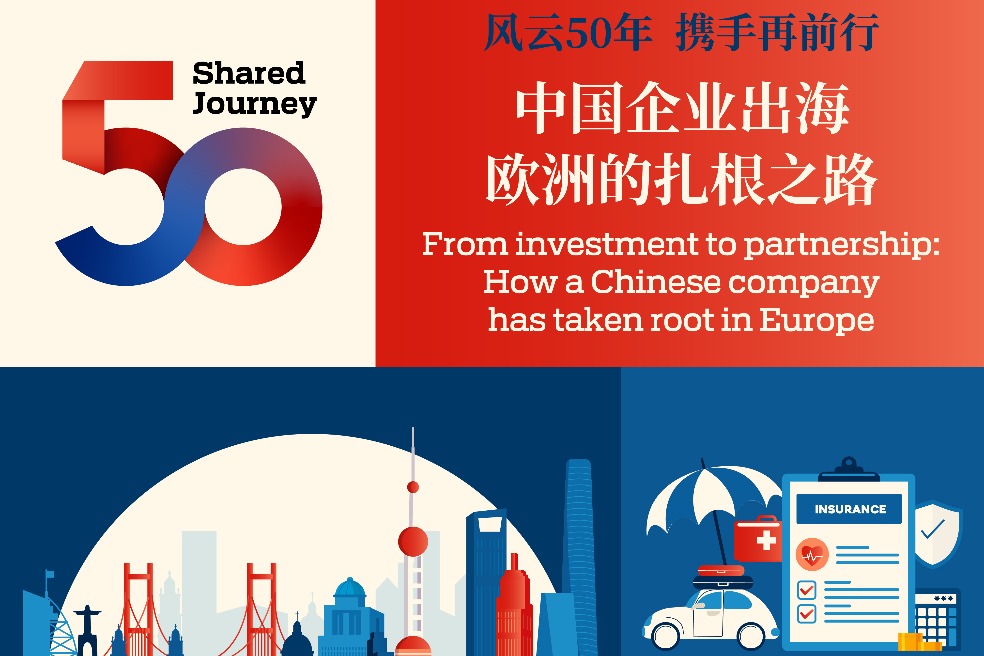Belt & Road Initiative benefits all, don't politicalize
Xinhua | Updated: 2017-05-10 10:08
 |
| The hotel Burj Al-Arab is seen during sunset in Dubai, the United Arab Emirates (UAE), Dec 30, 2016. The UAE, located at the intersection of the Belt and Road Initiative, is an important partner for China to promote the Belt and Road Initiative. [Photo/Xinhua] |
BEIJING -- While many countries are excited to be attending the upcoming Belt and Road Forum from May 14 to 15 in Beijing, some Western media continue to hold a the Cold War mentality and smear the initiative as neocolonialism.
Some media reports arbitrarily politicalized the initiative, alleging it is not mutually beneficial as China proposes and accusing the country of "seeking to dominate" and taking a grab at "global leadership".
Facts and figures show this viewpoint is not correct.
Although the Belt and Road Initiative was put forward by China, all parties are involved in carrying it out. China has no intention to stage a solo play.
Since 2013, over 100 countries and international organizations have responded warmly to the initiative, and nearly 50 inter-governmental agencies have signed agreements of cooperation.
Openness, inclusiveness and mutual benefit are the hallmarks of the initiative and source of much of the extensive support it has garnered.
As the world economy is still recovering from the 2008 financial crisis, it is in urgent need of an efficient, inclusive platform that can help all parties cope with the global challenges.
Official data showed Chinese businesses signed new contracts totaling 126 billion US dollars in countries along the Belt and Road in 2016, with projects spanning energy, infrastructure and industrial cooperation, up 36 percent year on year.
In the process, China and the other participants of the initiative have driven globalization forward and contributed to global economic recovery through freer trade and cultural exchanges.
Unlike the Marshall plan, which some media have compared the initiative to, no political conditions have been imposed on participants in the Belt and Road.
Nor is the initiative ideologically oriented. The participants include Western developed nations, socialist countries, Buddhist countries as well as Islamic states.
While some media have drawn attention to the expected absence of some major Western leaders from the forum, they should also be aware that the leaders of 28 countries are attending, including the Italian, Spanish, Greek and Polish prime ministers and Swiss and Czech presidents.
British Finance Minister Philip Hammon will attend on behalf of the country's prime minister, while, due to ongoing electoral matters, Germany and France will send high-level representatives to voice their support for the forum.
The initiative is based on equality, accessibility to growth and mutual benefit. It is not an exclusive club for Western countries, but serves mostly for the extensive developing nations. The forum is a circle of friends, with representatives from more than 100 countries and regions attending.
Admittedly, given that so many countries are involved, the initiative has its fair share of difficulties and challenges, such as technical, language and cultural barriers.
However, the early harvests and determination of the participants demonstrate the limitless potential waiting ahead. The initiative is bound to bring prosperity to the people living along the Belt and Road.
Living in today's interconnected world, prejudice and fear toward the well-intentioned initiative of openness and shared growth do not hold water.
























